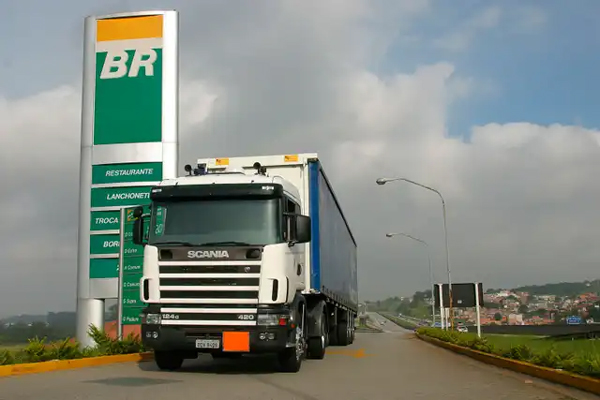
Jeff Fick, Platts
RIO
EnergiesNet.com 06 16 2022
Brazil’s Lower House passed a controversial measure June 15 that will reduce fuel taxes, approving changes to the bill made by the Senate and sending the measure to President Jair Bolsonaro to sign into law in the country’s latest effort to contain rising diesel and gasoline prices.
The bill will set the ceiling for the state ICMS tax on fuels, electric energy, natural gas, telecommunications, and public transport to a maximum of 17%-18%. The Senate passed the measure June 13.
The legislative efforts came amid heated criticism of state-led producer Petrobras and its policy of keeping domestic diesel and gasoline sales at parity with international imports that industry officials say is needed to keep Brazil supplied and avoid shortages. Brazil typically imports about 25% of diesel and LPG demand and about 15% of gasoline consumption.
Bolsonaro, lawmakers and trade groups have blasted the company for its pricing policy, saying that it takes advantage of the Brazilian people. The policy, however, is backed by an agreement between Petrobras and local antitrust regulators that ended the company’s monopoly in Brazil’s refining segment and requires the company to maintain domestic prices at import parity.
That has left the government scrambling for ways to offset international prices, which have soared after Russia’s invasion of Ukraine and fresh coronavirus outbreaks.
The ICMS tax change is expected to reduce the price of a liter of diesel by about 15 cents and gasoline by about 32 cents, according to government estimates. States will be reimbursed for the lost ICMS receipts by the federal government. The ICMS tax is considered the biggest revenue generator for states.
The Lower House also approved an amendment to the measure that will eliminate the federal PIS Cofins and CIDE taxes on gasoline and ethanol until Dec. 31, 2022.
In addition, the Senate passed June 14 a complementary measure, which will reduce taxes on anhydrous ethanol, hydrous ethanol and biodiesel and maintain fiscal benefits for biofuels for 20 years over fossil fuels. The change was needed to keep the biofuels competitive with fossil fuels after the ICMS change.
The bill now heads to the Lower House for consideration.
Price hike possible?
Concerns were growing, however, that the benefits of the tax cuts would be short-lived amid market chatter that Petrobras was once again planning to raise fuel prices. Petrobras last raised diesel prices May 10 and gasoline prices March 11, with the refined products now selling at 20%-plus discounts to domestic prices, according to the Brazilian Association of Fuel Importers, or Abicom.
“Petrobras continuously monitors markets in a manner that includes, among other procedures, daily analysis of the behavior of our prices relative to international quotes,” the company said in a regulatory filing June 14. Petrobras has warned the government that Brazil could face diesel shortages in the second half of 2022, when the sugarcane and oil seed harvests peak, should the company fail to maintain prices at parity.
But the government has continued to exert intense pressure on Petrobras to hold the line on prices, including several management shakeups at Petrobras and key government energy related institutions, such as the Mines and Energy Ministry. Bolsonaro has installed executives that hold close ties to Economy Minister Paulo Guedes rather than those with relevant industry experience.
Petrobras CEO Jose Mauro Coelho remains in the job ahead of an extraordinary shareholders’ meeting that will vote on a new slate of board members, including Bolsonaro-nominated CEO candidate Caio Paes de Andrade. The meeting has not yet been scheduled. New Mines and Energy Minister Adolfo Sachsida, who took over in May, also started studies to privatize Petrobras and government subsalt management company Pre-Sal Petroleo SA, or PPSA.
The moves were seen as Bolsonaro’s attempt to shift blame for high fuel prices amid a heated reelection battle. Bolsonaro currently trails former president Luiz Inacio Lula da Silva, or Lula, by double digits in early polling ahead of presidential elections in October.
Despite the pressure, Petrobras continued to reaffirm its intent to keep domestic fuel prices in line with international imports. In a statement, Petrobras said that it would “maintain its commitment to the practice of competitive prices in equilibrium with the market, while at the same time avoiding the immediate transfer of external volatilities and foreign exchange rates caused by temporary events.”
spglobal.com 06 15 2022







